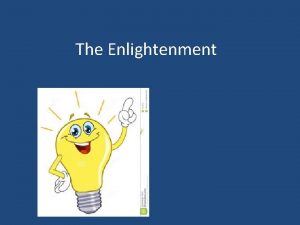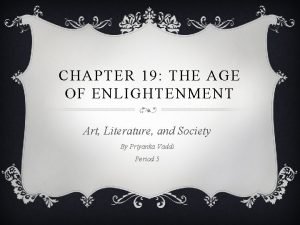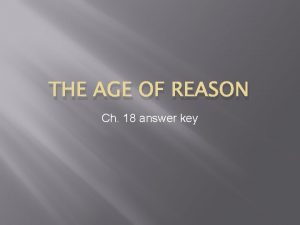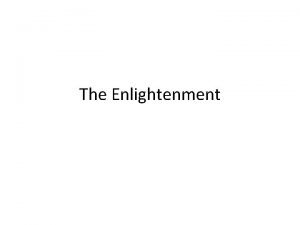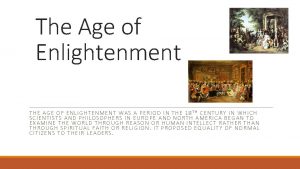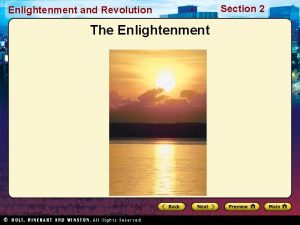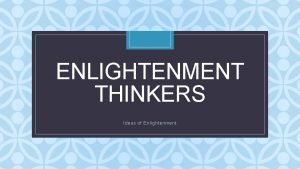Age of Enlightenment Age of Enlightenment A movement





- Slides: 5

Age of Enlightenment

Age of Enlightenment A movement in the 1700 s which encouraged intellectual thinking and sought to reform abuses by government and the church. The Age of Enlightenment brought about change in the way governments operate, philosophy, art, music, free thinking, science, math, and other educational fields. The thoughts of the Age of Enlightenment encouraged Revolutions across the world and influenced many parts of the U. S. Declaration of Independence, the U. S. Constitution and the Bill of Rights.

John Locke Every man has a property in his own person. This nobody has a right to, but himself. No man's knowledge here can go beyond his experience. Where there is no law, there is no freedom The end of law is not to abolish or restrain, but to preserve and enlarge freedom And reason. . . teaches all mankind who will but consult it, that being all equal and independent, no one ought to harm another in his life, health, liberty or possessions. Unalienable Rights – Rights all people are born with and are protected by government

Important English Documents The Magna Carta • The Magna Carta was a document signed by King John of England in 1215 that guaranteed rights to the nobility • King willingly gives up his rights to the citizens • Neither side followed the contract, but it was a first step towards self government

Important English Documents English Bill of Rights • Passed in 1689, an Act of the Parliament of England that sets out certain basic civil rights • The Bill of Rights lays down limits on the powers of the monarch and sets out the rights of Parliament, including the requirement for regular parliaments, free elections, and freedom of speech in Parliament. • It sets out certain rights of individuals including the prohibition of cruel and unusual punishment and reestablished the right of Protestants to have arms for their defense within the rule of law. • It also includes no right of taxation without Parliament’s agreement.



